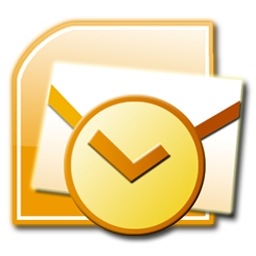Microsoft word 2008 free download pc. Office Tools downloads - Microsoft Office Word by Microsoft and many more programs are available for instant and free download. Microsoft Office 2008 free download - Microsoft Office 2011, Microsoft Office 2010, Microsoft Office Outlook 2007, and many more programs.
I’ve been using Outlook 2013 since it came out and I’m still quite happy with it.
I know that since then Outlook 2016 has come out and Outlook 2019 is the latest version that is available. Then there is also Microsoft 365 which apparently is always the latest version of Office.

With so many newer versions of Outlook, is Microsoft still committed to support my Outlook 2013 version or is it time for me to move on?
Even though newer versions of Outlook and Office came out, Microsoft continues to support the older versions as well for quite some additional years.
The support end dates are divided between “Mainstream” and “Extended”, for which you’ll find an explanation below the Support End Dates table.
Microsoft 365 has a separate lifecycle which is explained at the end of this guide but in short; This version is always supported.
Support End Dates
| Version | Mainstream | Extended |
|---|---|---|
| Office 2003 | April 14, 2009 | April 8, 2014 |
| Office 2007 | October 9, 2012 | October 10, 2017 |
| Office 2010 | October 13, 2015 | October 13, 2020 |
| Office 2013 | April 10, 2018 | April 11, 2023 |
| Office 2016 | October 13, 2020 | October 14, 2025 |
| Office 2019 | October 10, 2023 | October 14, 2025 |
Mainstream vs Extended support
The main differences between Mainstream and Extended support are as follows;
- During Mainstream support, updates can include bug fixes, feature changes and security fixes.
- During Extended support, updates mainly focus on security updates. Non-security updates may still be included in special circumstances or when specifically requested (see next point).
- During Extended support, to request non-security updates, you’ll need to purchase Unified Support.
As an end-user, you’ll hardly realize the difference between the two as updates will still be provided until the Extended Support date has been reached.
However, once a product has reached its Mainstream Support end date, it is generally recommended to start planning to upgrade to a newer version.
Microsoft 365
When you use Microsoft 365, you don’t have to worry about any support dates. Microsoft continues to support and update Microsoft 365 and it will always include the latest version of Office.
You only really need to be aware of 2 things;
- You need to have an active Microsoft 365 subscription.
- You need to stay up-to-date within your so-called “Release Channel”.
With the “Release Channel”, you can control when and how often you’ll receive new features and updates. For more info see; Why am I not getting the latest updates for Microsoft 365 Apps, Outlook 2019 or Outlook 2016?
By default, Microsoft 365 is configured to update itself automatically, but you can also manually check for updates.
I’ve been using Outlook 2013 since it came out and I’m still quite happy with it.
I know that since then Outlook 2016 has come out and Outlook 2019 is the latest version that is available. Then there is also Microsoft 365 which apparently is always the latest version of Office.

With so many newer versions of Outlook, is Microsoft still committed to support my Outlook 2013 version or is it time for me to move on?
Even though newer versions of Outlook and Office came out, Microsoft continues to support the older versions as well for quite some additional years.
The support end dates are divided between “Mainstream” and “Extended”, for which you’ll find an explanation below the Support End Dates table.
Microsoft 365 has a separate lifecycle which is explained at the end of this guide but in short; This version is always supported.
Support End Dates
| Version | Mainstream | Extended |
|---|---|---|
| Office 2003 | April 14, 2009 | April 8, 2014 |
| Office 2007 | October 9, 2012 | October 10, 2017 |
| Office 2010 | October 13, 2015 | October 13, 2020 |
| Office 2013 | April 10, 2018 | April 11, 2023 |
| Office 2016 | October 13, 2020 | October 14, 2025 |
| Office 2019 | October 10, 2023 | October 14, 2025 |
Mainstream vs Extended support
The main differences between Mainstream and Extended support are as follows;
- During Mainstream support, updates can include bug fixes, feature changes and security fixes.
- During Extended support, updates mainly focus on security updates. Non-security updates may still be included in special circumstances or when specifically requested (see next point).
- During Extended support, to request non-security updates, you’ll need to purchase Unified Support.
As an end-user, you’ll hardly realize the difference between the two as updates will still be provided until the Extended Support date has been reached.
However, once a product has reached its Mainstream Support end date, it is generally recommended to start planning to upgrade to a newer version.
Microsoft 365

When you use Microsoft 365, you don’t have to worry about any support dates. Microsoft continues to support and update Microsoft 365 and it will always include the latest version of Office.
You only really need to be aware of 2 things;

- You need to have an active Microsoft 365 subscription.
- You need to stay up-to-date within your so-called “Release Channel”.
With the “Release Channel”, you can control when and how often you’ll receive new features and updates. For more info see; Why am I not getting the latest updates for Microsoft 365 Apps, Outlook 2019 or Outlook 2016?
Microsoft Outlook 2007 Download
By default, Microsoft 365 is configured to update itself automatically, but you can also manually check for updates. Commview drivers realtek driver.